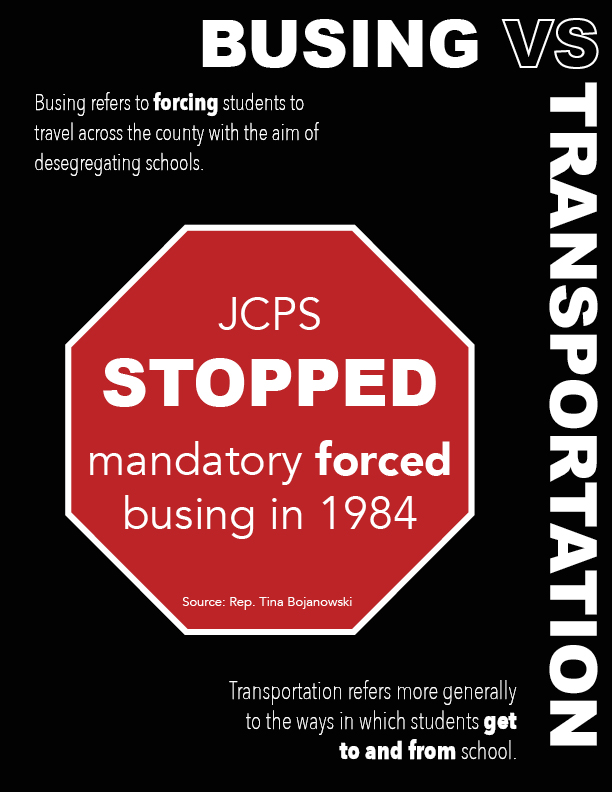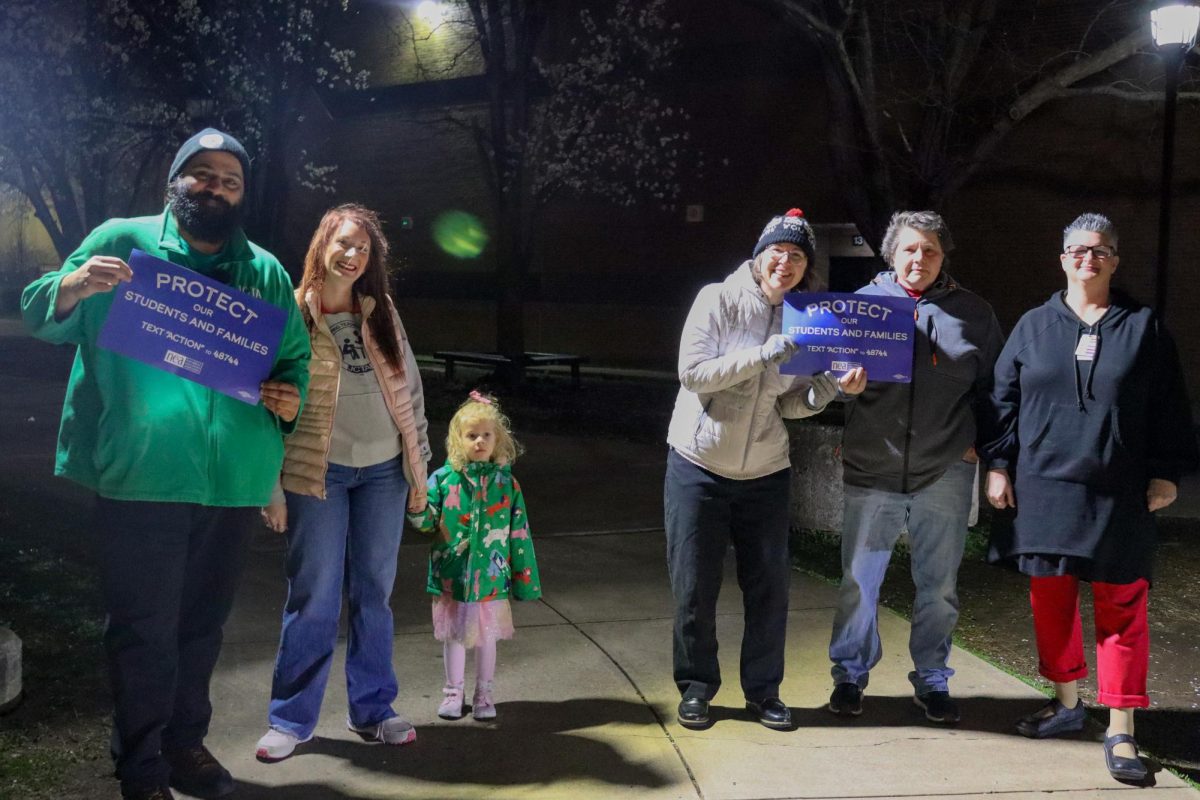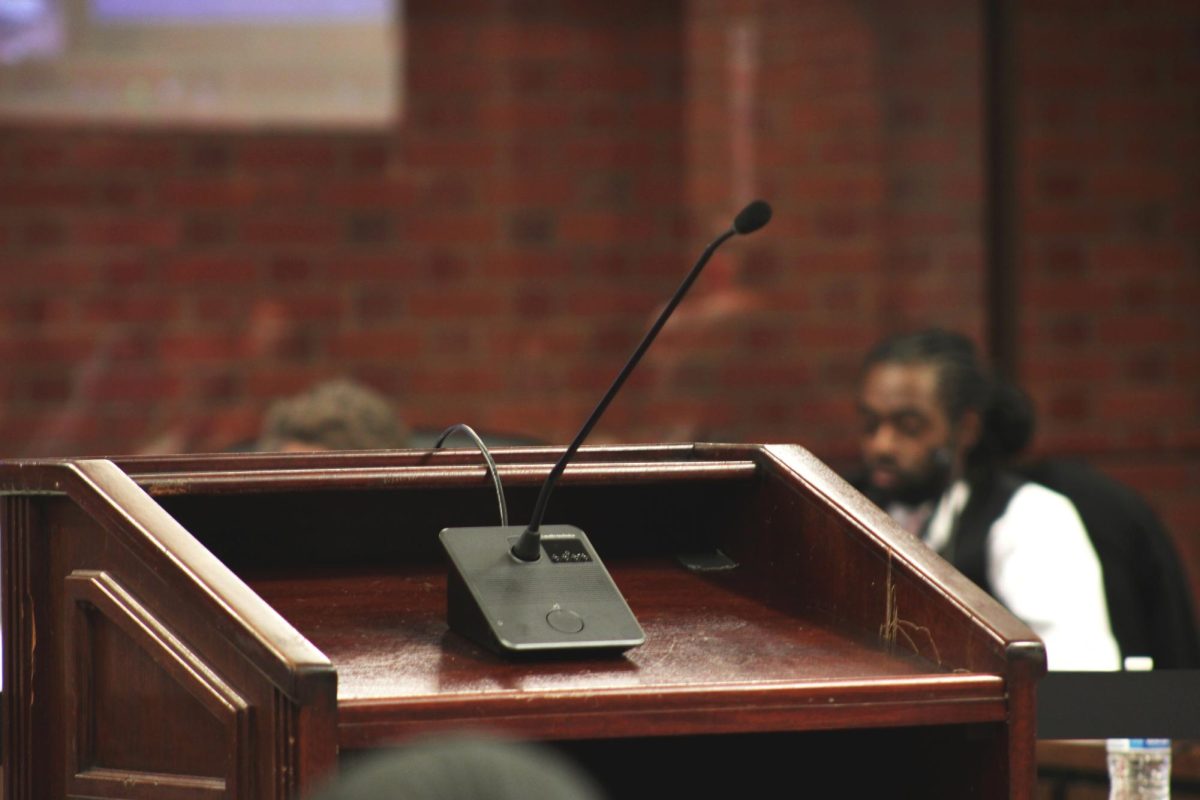After the first day of school transportation disaster for Jefferson County Public Schools (JCPS) on Aug. 9, a finger-pointing game ensued. Some news outlets blamed Superintendent Pollio and the JCPS school board for a failure in leadership, while others took out their frustrations on bus drivers. Still, others looked to state lawmakers for what they could have done to prevent the bus issues, and what they can do to ensure that a transportation “catastrophe” of this magnitude does not happen again.
“Last year, I had students who were regularly late for school. Their bus wouldn’t come until 9:15 or 9:20 [for a 7:40 start time],” State Representative Tina Bojanowski said. In addition to being a legislator in Frankfort, Bojanowski is a special ed resource teacher in JCPS, so she has directly observed the negative effects of the transportation issues on students and classrooms.
“Even with all the restructuring, I think there are still so many shortages of drivers. I’m not sure that the problem has been solved,” she said.
Bojanowski and four other Democratic Louisville legislators held a forum to allow parents to voice their concerns on Sunday, Aug. 13, after JCPS had announced it would cancel school for two additional days.
“In my gut, I was like, these parents need to be heard,” Bojanowski said.
As a legislator, Bojanowski felt it was her responsibility not only to be a bridge between parents and the district, but also to gather input needed to develop solutions in Frankfort.
“Anything that was urgent relating to a specific bus, that sort of thing, I did forward on to the district. And other issues, that’ll just be data for us to analyze as we start developing policy for the January session,” Bojanowski said.
One of these proposed policies is allowing bus drivers to use GPS on their routes.
“One thing that shocked me is that the bus drivers actually were doing all their routes with a packet of stapled-together papers,” Bojanowski said. She wants to change the current statutes or regulations that prevent the use of GPS while still maintaining student safety.
One solution many are calling for is more funding from the state to hire and retain bus drivers. A nationwide shortage of bus drivers led to the new start time and transportation plan JCPS instituted this school year.
“Part of the reason that there has been this loss of bus drivers in various places, especially Jefferson County, is that there are just better-paying alternatives,” Jason Bailey of the Kentucky Center for Economic Policy said, “It’s a part-time, part year job, and you could just make a lot more money if you have a commercial driver’s license driving for UPS or some other company. So, there really has to be a big increase in salary, and the legislature can and should help with that.”
While better pay could be a solution to the bus driver shortage, not everyone agrees that it is the state’s responsibility to give the district more money.
“If you look at how transportation is funded across the state, to say that JCPS has been underfunded is incorrect, or, not factual because JCPS is funded at the same percentage that Owsley County is, that Oldham County is, that Pike County is. Each county or each district gets the same percentage of funding,” Republican Senator Julie Raque Adams, also of Louisville, said, “If JCPS felt as if they were being underfunded, they did not communicate that with the members of the General Assembly.”
Additionally, Raque Adams points to a lack of organization within JCPS as a potential cause for the first day of school transportation disaster.
“What I heard most often was that the bus drivers themselves communicated to the administration that this isn’t going to work, that the resources that they have were insufficient, the routes were all new. And so, from what I understand, nobody listened to the actual human beings doing the job, and that is a huge failure in leadership,” she said.
It should be noted, however, that transportation issues are not plaguing JCPS alone. Bullitt County regularly has to cancel bus routes due to driver shortages. Daviess County started its school year late last year due to a bus driver shortage. And while attention was focused on JCPS’ struggles, Fleming County delayed its start date this school year also for “operational reasons.”
“This is not just JCPS. This is across the state. Across the state, there are districts that cancel routes,” Bojanowski said. Given the statewide nature of this issue, what responsibility does the state government have in implementing a solution?
In actuality, the state has a statutory obligation to fund 100% of transportation costs for students, but Bailey and The Kentucky Center for Economic Policy found the legislature has not met that requirement since 2005.
“This was part of major education reform in Kentucky in 1990. This was a commitment the state made following a Supreme Court ruling that said that Kentucky’s school system was not being adequately or equitably funded by the legislature, and so one of the remedies was to say, ‘Ok, transportation costs will go to the state, and they’ll pay that’,” Bailey explained.
However, due to the inclusion of the phrase ‘notwithstanding,’ the legislature has suspended the law every year since 2005, avoiding paying the full costs, even though, as Bailey explains, there is a large budget surplus in Frankfort.
“It would be very affordable for them to pay this full cost, but they’re choosing not to,” Bailey said, “When you look at Jefferson County, it’s actually quite a bit of money they’re being shorted. In the current year, it’s about $19 million. If you look over the last four years, it’s $104 million.”
It is impossible to know how the start of the school year would have gone differently if JCPS had received the funding they were promised by law, but more funding could have aided to combat the bus driver shortage and allowed the district to put more money into the development of a new transportation plan.
“School districts across Kentucky are missing out on this funding, and so the responsibility, that is really the state’s responsibility, has been pushed on to school districts,” Representative Lisa Willner explained.
Willner served on the JCPS School Board for one term before becoming a state representative. She has made it her mission while in Frankfort to advocate for public education.
“Since this is a problem that does affect every single public school district in Kentucky, and every single county, I’m hoping that legislators will understand and appreciate the importance,” Willner said.
Due to the partisan nature of the issue, though, it seems that the General Assembly will not easily come to a consensus, as every lawmaker has different ideas about what has caused JCPS’ transportation woes and how to solve them.
“Everyone thinks that these issues are funding, like somehow funding is going to magically solve the bus crisis or our learning loss or, you name it. And really, that’s a very simple way to think about these big issues that we need to solve for JCPS,” Raque Adams said.
Many Republicans believe the solution is extensive changes to JCPS’s school board, school choice plan, and even its size.
“We will call for a commission to evaluate splitting up JCPS. With nearly 100,000 students and 165 schools, the district is too big to properly manage,” an open letter signed by all 12 Republican legislators who represent Jefferson County said.
“There are a lot of school districts that operate without anybody getting into their business because they have very efficient districts. Jefferson County is just unique in that it’s so large that it just seems to have a lot of attention placed upon its activities. So will the legislature discuss breaking up JCPS? I’m sure,” Raque Adams said, “JCPS isn’t working for a lot of families, and so I think it’s actually our job to have that conversation about what is working, what’s not working.”
However, opponents of this plan point out that splitting the district would cause more problems than it would fix.
“I think part of the reason that you have a countywide district has to do with the extreme inequality between certain neighborhoods and others. If you were to split the district up, no doubt, you’re going to create some that are quite prosperous and others that are highly impoverished, and that’s going to worsen the ability to provide an equal education within Jefferson County,” Bailey said.
Raque Adams also addresses equity in discussing the possibility of breaking up JCPS into smaller school districts.
“There are some larger cities who have done it in very creative ways, but I think that making sure that we don’t have a system of haves and have-nots is really important to keep in mind, as you have this conversation,” Raque Adams said.
Bojanowski however, stands behind JCPS. “I’m an educator. I go in the classroom and I have colleagues and every day you’re in school there are amazing things happening. Amazing things in every building. And we need to bring that to light,” she said.
JCPS students, parents, and employees will have to wait to see what the 2024 legislative session will bring, but it is clear that JCPS and improving the transportation situation is a top priority for the lawmakers that represent Jefferson County, regardless of party.
Legislators on both sides of the aisle encourage students to communicate their needs and reach out to their legislators.
“I hope students will not only value their public education, but also advocate for it,” Willner said, “That would be my hope, that student voices could be really lifted up in this effort, and for people to stand up for their school and for their teachers and for their school district.”
Learn how to contact your state legislators here.








